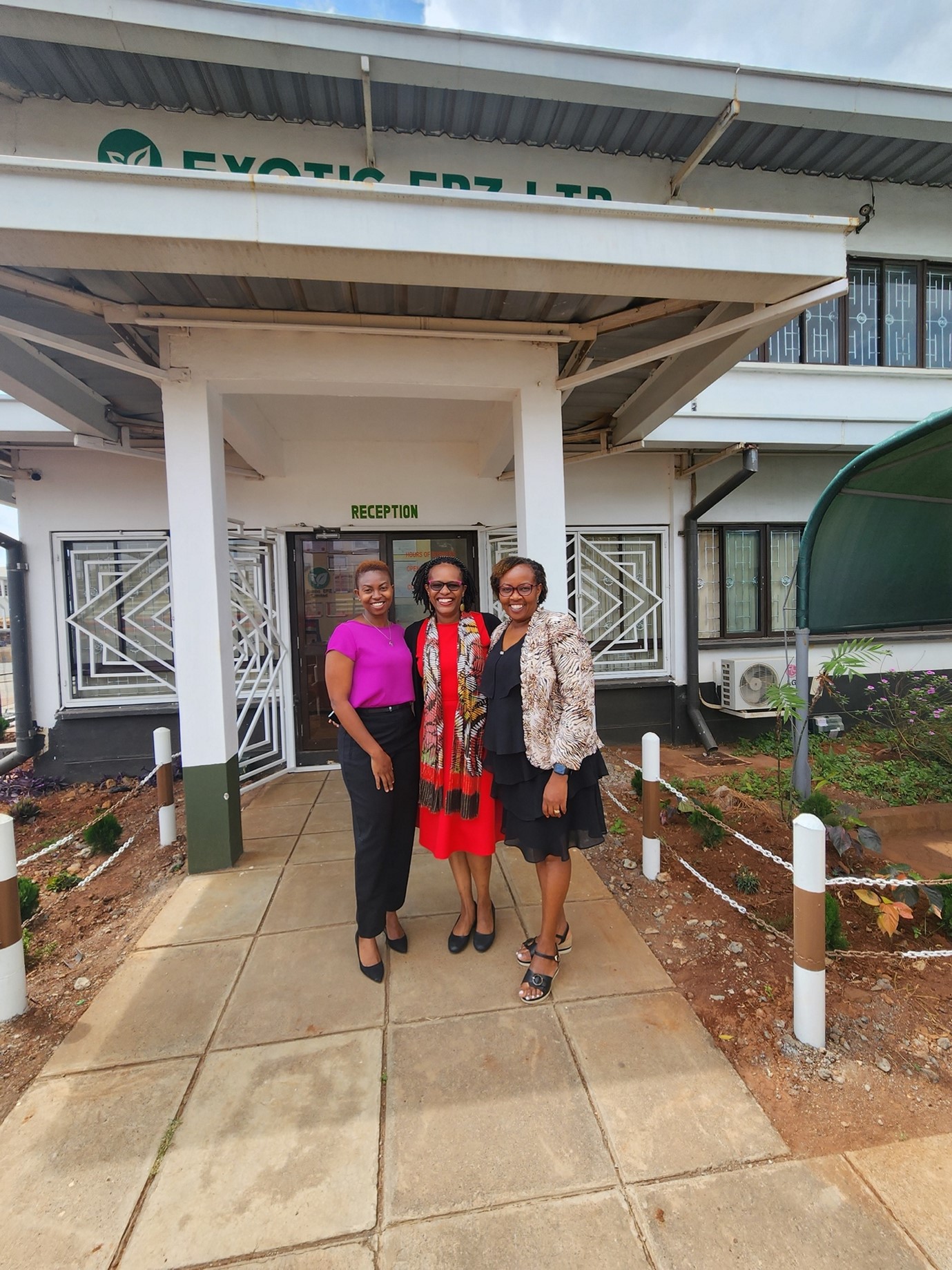Overcoming gender barriers and building a thriving agribusiness: Interview with Exotic
Exotic EPZ is Kenya’s only women-owned macadamia nut processor and exporter. Launched in 2017 by three inspiring women, Charity Ndegwa, Loise Maina and Jane Maigua, it was recently supported by the CFC with an investment designed to help expand the company’s positive impact. We talked to two of the leadership team, Charity and Jane, about the hurdles they’ve overcome on the way to establishing a ground-breaking business.
Why is women’s economic empowerment so important to you?
Jane: Growing up, we’ve seen the challenges women face in Kenya, in terms of both running their families and engaging with economic opportunity, especially in rural areas. They struggle to access finance and face numerous cultural barriers. For example, the expectation they are responsible for childcare and the home, makes it hard to find the time to take advantage of opportunities such as training. That means most of them don’t have the skills, information or confidence to set up a business.
Charity: Unlike many rural women, we’ve been lucky enough to have opportunities. We have had a good education, gained degrees and developed fulfilling careers. We want to pass that opportunity on to women who are struggling to overcome cultural and economic barriers to prosperity.
How did your career lead you to launching Exotic?
Jane: We’d both previously worked for development and non-government organisations (NGOs), focussing on women’s empowerment, entrepreneurship and employment. We supported rural women to grow their businesses from subsistence farming into sustainable enterprises. That included helping them to move up the supply chain so they sell directly to clients such as hotels, achieving a better price than going through middlemen. We could see there was a gap in the market for a business with a strong purpose to support women.
Did you face gender barriers when you were setting up Exotic?
Charity: Yes! Several men in the sector said there was no way we could make it as a women-led business, because we would not be taken seriously, and without solid collateral local banks would not look at us in terms of financing. The journey from idea to start-up took us one and a half years!
Why did you decide to launch a business in the macadamia sector?
Jane: Our priority was finding a sector with the most potential to support rural women. We assessed the viability of several business ideas and decided to go with macadamia nuts because of the international demand. We could also provide a market to many small holder farmers who grow macadamia nuts back home and add value by processing the nuts locally, because macadamias need to be dried quickly to avoid them spoiling.
Charity: We had little knowledge of macadamia nut processing at the start, so we had to learn quickly and work with the right partners to buy the right equipment and set up the factory correctly. Now we have a modern factory with the highest standards of hygiene, producing high quality products.
How do you support women smallholders to thrive?
Charity: We’ve run capacity building projects for all our smallholders from the start, but with a particular focus on women. We train them in effective growing techniques and financial skills, to help them manage their business. We’ve also located hubs in rural areas where they can sell their produce without using middlemen. Without a local hub, women who can’t afford the time to travel will simply sell their produce to the nearest buyer, whatever the price. These initiatives mean they receive between 1.5 and 2 times more for their nuts by working with us.
Jane: We’re also working with a telecoms provider to pay our smallholder farmers directly to their phones. There is a high level of mobile coverage in Kenya and phones can be bought cheaply. If they don’t have a bank account, they can use a mobile wallet, which we’ll pay directly into. They can use that in stores and to pay school fees which, especially for women, gives them financial independence and control.
How will the CFC’s investment support your business?
Charity: Currently, we process 3000 metric tonnes of macadamia nuts annually and last year paid out USD3 million to our smallholder suppliers. The CFC’s investment will provide us with the working capital we need to source more nuts from more farmers and expand our impact. We want to double our output and increase the number of smallholders who supply us to 10,000 over the next three years.
Jane: We also want to diversify into roasting nuts and producing oils, and have plans to build new macadamia nuts processing factory. This will increase the amount of nuts we need to source, so we can buy more from smallholders.
What advice would you give to other women thinking of launching an agribusiness?
Charity: Don’t doubt yourself, you are clever enough and you have the soft skills needed to build important relationships. This is a good time to be looking for impact investors because they’re keen to support women-led businesses. You need to have the business fundamentals in place, but if you do, go for it!
If you run an agribusiness that aims to have a positive social or environmental impact, why not follow in Exotic’s footsteps and apply for our financial support through our Call for Proposals?

